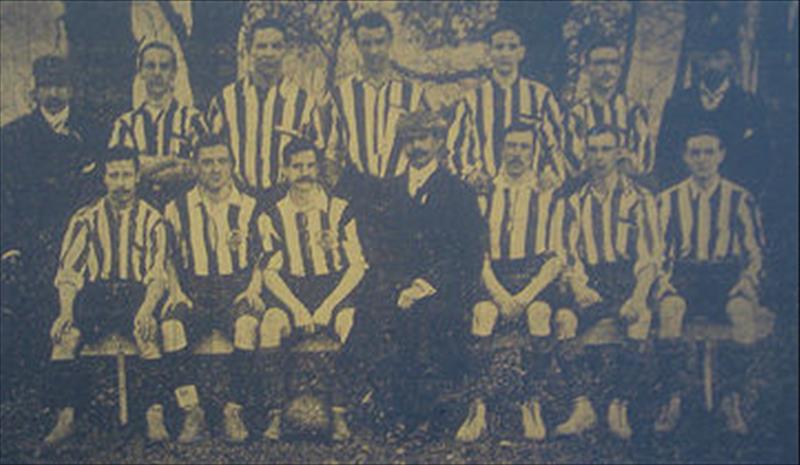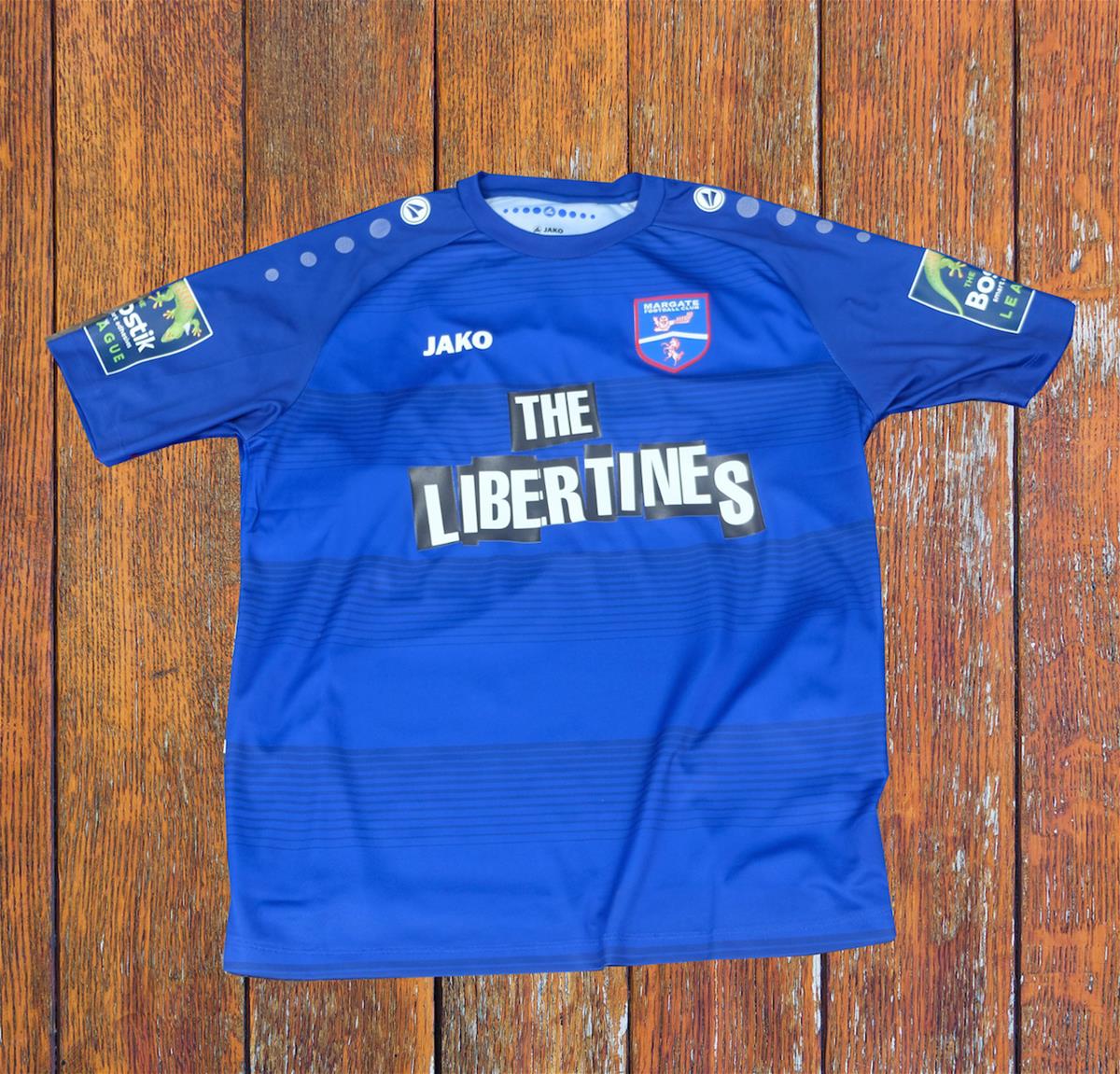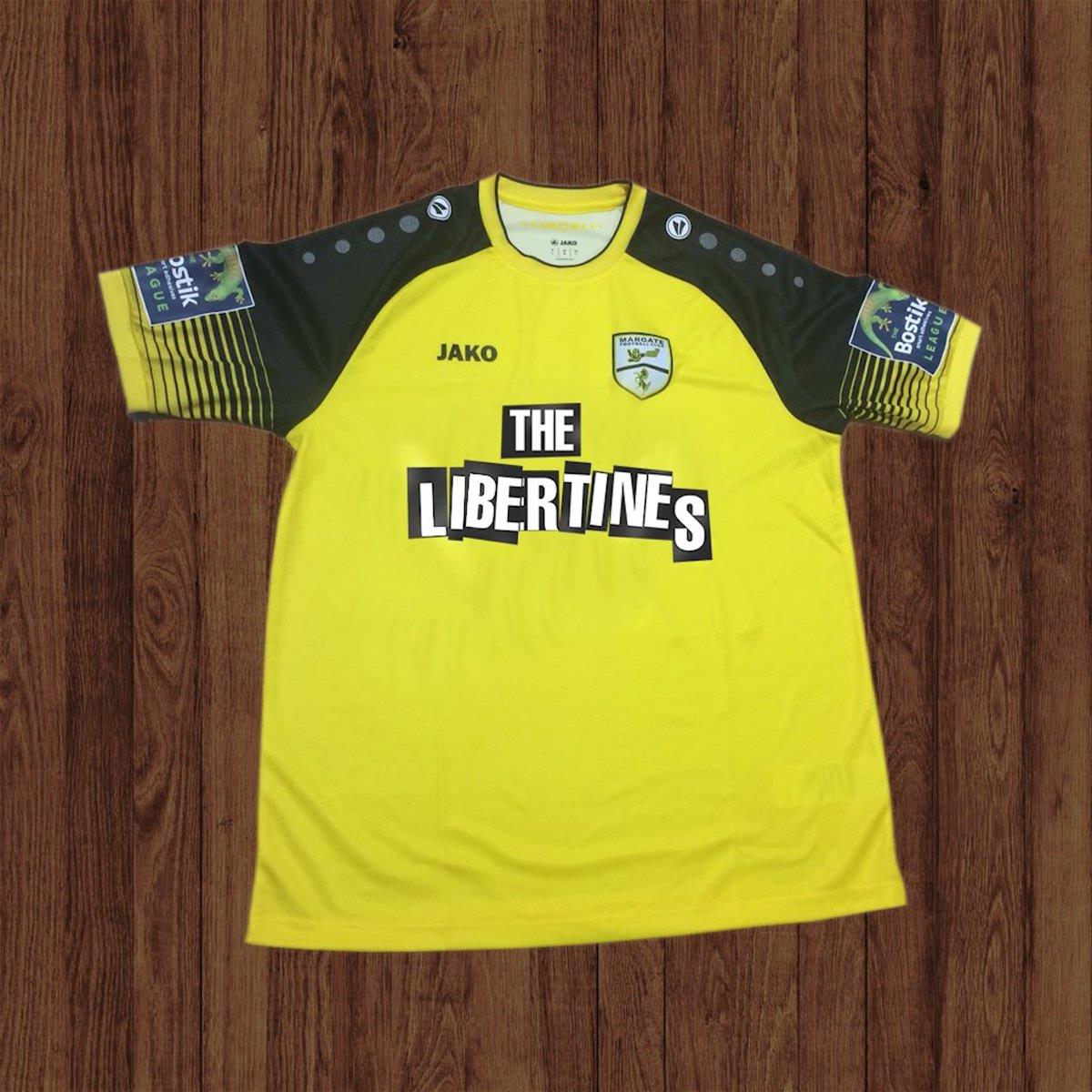Home /
Club & Commercial / Margate FC History
Margate FC History
Margate Football Club was founded in 1896 as an amateur club and was originally called Margate Town, playing friendly matches on local school grounds. In the years before the First World War the club played in several different amateur leagues, with little success, and played at various grounds in the Margate area, before settling on a pitch at what would later become the Dreamland amusement park in 1912. This ground became known as the Hall-by-the-Sea Ground, taking its name from a local dance hall.

After the First World War, Margate joined the Kent League, but in 1923 the league suspended the team due to financial irregularities and the club promptly folded. A year later the club reformed, initially under the name Margate Town, and returned to the Kent League, still playing at Dreamland, but folded again due to heavy debts. In 1929 the club reformed again and moved to its present home at Hartsdown Park, leasing part of the park from the local council for conversion into a football stadium. Around this time Margate signed a Dutch player, a highly unusual move in an era when it was almost unknown for Continental players to move to English clubs. Goalkeeper Gerrit "Gerard" Keizer, who joined the Kent club from Ajax Amsterdam, later went on to play for Arsenal.
From 1934 until 1938 Margate, by now playing in the Southern League, served as the official nursery side for Arsenal. Under this arrangement the London club regularly loaned promising young players to Margate in order for them to gain match experience. Star players such as Eddie Hapgood also turned out for Margate whilst regaining match fitness after injuries. In the second season of this arrangement, 1935–36, Margate reached the third round proper of the FA Cup for the first time, losing 3–1 to Blackpool after defeating Queens Park Rangers and Crystal Palace in the earlier rounds, but shortly after this the club had to step back down to the Kent League for financial reasons.
After the Second World War the Gate continued to play in the Kent League under new manager Charlie Walker, who led the team to two Kent League championships but was then controversially sacked. The team slumped during a succession of rapid managerial changes which only ended in 1950 when Almer Hall was appointed manager, a post he was to hold for the next twenty years. Under Hall the team won a host of local cup honours and reached the rounds proper of the FA Cup on a number of occasions, but never managed to match this success in league competition.
In 1959–60 Margate returned to the Southern League after the Kent League folded, and in 1962–63 won the Division One championship and with it promotion to the Premier Division. Two years later the club turned full-time professional but this policy proved financially untenable when the team were relegated back to Division One in 1965–66. Nonetheless, they won promotion at the first attempt and returned to the Premier Division in 1967.
During the 1970s Margate endured severe financial problems and a series of mediocre league seasons, but took part in two famous FA Cup ties. In 1971 the Gate lost 11–0 to Bournemouth, with Ted MacDougall scoring a cup record nine goals. Then, a year later, Margate beat Swansea City and Walton & Hersham to set up a third round tie against First Division Tottenham Hotspur, then UEFA Cup holders. A record crowd of around 14,500 packed into Hartsdown Park for a match which Margate lost 6–0.
In 1996, the club's centenary year, the club appointed Chris Kinnear as manager. In 1997–98 he took the team to the first round proper of the FA Cup where they played Fulham in a home tie that drew a crowd of 5,100. Although the Gate took the lead, the Cottagers eventually won 2–1. The following season saw the club finally win promotion to the Southern League Premier Division, albeit only after an appeal was lodged against the league's initial refusal to allow the team promotion due to the club failing to carry out necessary ground improvements in time. The Premier Division championship followed in the 2000–01 season, and with it promotion to the Football Conference.
The 2001–02 season was Gate's first ever season of Conference football and they finished the season in eighth place. In the 2002–03 season the team began groundsharing at Dover Athletic's Crabble Athletic Ground while redevelopment work took place at Hartsdown Park, but various problems stalled the planned redevelopment. On the pitch, Margate enjoyed more success in the FA Cup when, after defeating Leyton Orient in the first round, they were drawn at home to Cardiff City in the second round, but lost 3–0 at Crabble. The following season, despite finishing sixteenth, the Gate were forcibly relegated one division due to the ongoing delays and problems with the redevelopment plans for Hartsdown Park.
Margate spent the 2004–05 season in the Conference South, now groundsharing at Ashford Town. Amid ongoing issues with the redevelopment work, which at one point made it seem very likely that the club would fold completely, Margate were again relegated to the Isthmian League Premier Division.
In August 2005, Margate returned to Hartsdown Park after three years in the wilderness. During an indifferent season manager Kinnear was controversially suspended. Robin Trott was placed in temporary charge as player-manager in April 2006 and, after an unbeaten five game run, was given a one-year contract at the end of the season. After Margate narrowly missed out on the play-offs in 2006–07 the club announced that Trott was to be given a new contract for the 2007–08 season. Shortly before the end of the season, however, Trott was sacked. His replacement, Barry Ashby, was himself sacked two months into the 2008–09 season. Shortly afterwards, the club narrowly avoided being subject to High Court action over unpaid debts to HM Revenue and Customs. The club finished the season in 19th position in the table and was expected to be relegated to Division One South, but was reprieved due to other clubs folding. The following season, Margate again finished in the bottom four but the club again received a reprieve from relegation.
Chris Kinnear returned for a second spell to manage the team at the start of the 2011–12 season. The following season Margate were sitting at top of the table in January, however, after much speculation Kinnear accepted the vacant manager's position at Dover Athletic. Goalkeeper Craig Holloway was placed in temporary charge of the side, and brought in Simon Osborn as joint manager. The club dropped from the top of the table and finished outside the play-offs. After a poor start to the 2013–14 season, Holloway resigned his role as joint manager, leaving Osborn in sole charge. Results failed to improve and Osborn was sacked at the beginning of December 2013.
In the 2014–15 season, the first full season under manager Terry Brown, Margate finished in 3rd place in the Isthmian League Premier Division, ensuring the team's qualification for the play-offs for promotion to the National League South (formerly Conference South). The play-offs were delayed by a lengthy appeal against a points deduction applied to fifth-placed Enfield Town, but when they eventually began, Margate defeated Dulwich Hamlet in the semi-finals. In the final Margate played Hendon, who had finished one place above them in the league, but a single goal from Ryan Moss gave them victory and promotion to the National League South.
Following a poor start to the 2015–16 season, Terry Brown was sacked. and replaced by Margate goalkeeper Nikki Bull and defender Jamie Stuart until the end of that season. In April 2016 Bull was appointed first team manager until the end of the 2017–18 season.
In February 2017, Steve Watt was appointed manager. Unable to help keep the club in the National League, Watt alongside management team Steve Brown and Mike Sandmann re-built the team in the Bostik League. Their first season was a strong one but the team fell just short of a play-off place.
In the summer of 2018, the club parted ways with Watt.
The Gate managed to secure the continued services of Brown and Sandmann who were announced as Joint Managers. The announcement also coincided with a historic new sponsorship deal with global band, The Libertines.
Unveiled as the club's new shirt sponsors having announced plans to open a new venture called The Albion Rooms in the local area, Margate was put on the map with hundreds of fans across the local area, country and world purchasing the fresh-looking kit.


On the pitch, after a good start to the 2018/19 campaign, a tough Christmas ensued, resulting in the resignation of Brown.
Former player Jay Saunders was appointed to oversee proceedings until the end of the season and given the aim of ensuring The Gate retained their status in the Bostik Premier League. Assisted by Sandmann, Saunders guided Margate through a brilliant unbeaten run and impressive string of victories which led to the team finishing the season in 12th place.
In the summer, Saunders was appointed permanent Manager as the club looks ahead to an exciting 2019/20 season in the Bet Victor Isthmian League.
Last updated: Monday 04 November 2019 @ 10:24 AM